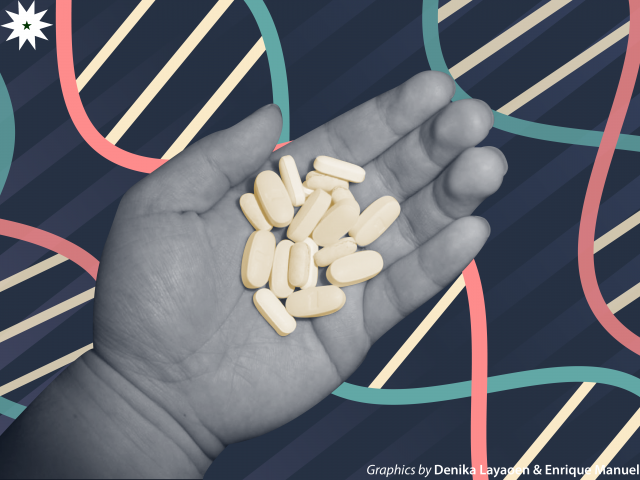How an individual responds to medicines is uniquely determined, to a great extent, by their physiology and behavior. A drug, for example, which may improve one person’s health can, conversely, harm that of another.
Leveraging this uniqueness has for a long time been at the bleeding edge of medicine but due to recent advancements is now close to being at the forefront of a revolution in healthcare. Such is the case of personalized medicine, which recognizes that every individual is distinct when it comes to the standards and requirements of their health.
Personalized medicine uses a person’s genetic profile—a unique set of characteristics coded by their DNA—to determine whether or not they would benefit or even be harmed by certain medicine.
While most medicines consider the typical response to the medication during clinical trials, personalized medicine acknowledges that no two patients are alike.
Pharmacogenomics, which deals with such revolutionary technology, is the branch of science that studies how a person’s genes affect their response to drugs. It combines the fields of pharmacology—the study of drugs and their actions on living systems—and genomics—the study of genes and their functions—and facilitates the development of personalized medications. Moreover, in order to determine one’s genetic profile, especially in the context of predicting susceptibility to a particular disease, samples of biological matter such as body tissues or fluids are analyzed.
Stemming from the nexus
“DNA sequences can be selected and used in various ways depending on the intended applications for personalized medicine,” states Dr. Salvador Caoili, a professor of the UP-Manila College of Medicine.
He cites as an example cases of “severe, life-threatening inborn disorders” caused by mutated or even missing DNA sequences in patients. “The disorders might be treated using gene therapy, whereby normal versions of the mutated or missing DNA sequences are placed into cells to improve cellular function,” the professor expounds.
Caoili continues that disease-related DNA sequences are analyzed among patients to evaluate the risk of developing diseases and to predict responses to different types of treatment such as drugs.
“Adding to or otherwise altering DNA in cells of the body can have unexpected and unintended consequences, which can be potentially harmful with or without other forms of medical treatment being provided as well,” he further treads on the possibility for these personalized medicines to be incompatible with other forms of medical treatment “at least in principle.”
Caoili mentions that such consequences are “difficult to predict because even a single cell is an exquisitely complex system, such that the whole body is itself far more complex than we can presently comprehend.” Therefore, gene therapy is justified only where the benefits clearly outweigh the risks, “as in cases of severe life-threatening inborn disorders for which viable alternative treatment options have yet to be developed.”
Taking, for example, the proper dose selection for a patient’s medication, the professor believes that the analysis of DNA among patients is in itself “of immense value, as the information gained can be used to prevent or treat disease without ever deliberately altering any DNA in the process.”

Sequencing the next generations
While personalized medicine can be immensely beneficial in the development and prescription of medications, it requires complicated technologies and rigorous processes, which may require testing the patient’s biomarkers or targeted DNA sequencing.
Targeted sequencing captures specific regions of the DNA in order to perform an analysis of their sequences, which is then used for applications in personalized medicine. As a general rule, Caoili notes that DNA sequences are chosen for personalized medicine based on their roles in causing diseases or influencing treatment responses.
This process of DNA sequence selection may be performed using two selection strategies called multiplex PCR and hybridization capture. Either strategy gives way for a specified analysis of the proteins, which sheds light on the proteins’ role in disease progression and its subsequent effect on a patient.
“The information contained within the chosen DNA sequences directs cells to produce varying amounts of particular proteins, often with distinct versions of the proteins being produced, among different persons due to variations in their respective DNA sequences,” Caoili explains. Both strategies are also performed with the caution of additional mutations occurring in the samples.
Authorizing resolutions
Medicine for a long time has developed under the notion that the interests of the majority must be prioritized. That being said, personalized medicine is paving a way to better treat underrepresented minorities in medical clinical trials as we will finally have the tools to address gaps in our understanding of medicine.
Personalized medicine is, indeed, characterized by its specificity; however, the genetic data of one patient may also be of use to other patients’ conditions.
Such procedures are strictly regulated for subgroups of patients affected by the same genetic mutations—with consideration for their current disease progression rates, medical history, lifestyle, and their chances of reaping the benefits from treatment.
Such regulation ensures that patients are able to receive optimal care and that complications are minimized. “Gene therapy is strictly regulated in view of possible unwanted outcomes that are difficult to predict,” Caoili furthers.
All of this allows personalized medicine to focus on the person who has a disease, rather than the disease that they have—encouraging the creation of specific therapeutic agents for those outside medical norms. This process, Caoili says, “could lead to a deeper understanding of many diseases that seem very different from one another yet share common underlying features at the level of DNA sequences.”
Remodeling paradigms
With new developments in personalized medicine, the pharmaceutical and healthcare industries are undergoing a paradigm shift that considers the uniqueness of patients’ biological and genetic needs. This shift, according to Caoili, means that “doctors and pharmaceutical developers need to more carefully consider underlying genetic diversity among patients.”
Personalized medicine is the start of a pharmaceutical revolution that allows the development of patient-specific and molecularly-targeted therapies, bringing us toward the goal of providing optimally customized, equitable, and inclusive healthcare for all patients.
